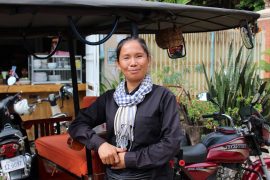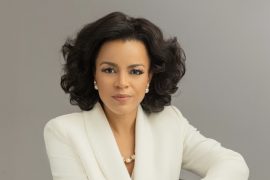The First Lady of Zimbabwe Auxillia Mnangagwa has set up a toll-free line into a call centre set up in the office of the First Lady so that immediate help can be rendered to victims of gender-based as they are swiftly connected to police, emergency medical services or counselling services as appropriate.
The call centre was set up following reports of escalating cases of gender-based violence (GBV), in the vast majority of cases by men on women, and the need for instant reporting and support to ensure the safety of the victims.
Around the world, lockdowns used to contain Covid-19 have been seeing more GBV as women with abusive partners are locked up with these men.
The toll-free number is 575 with users of TelOne, NetOne and Telecel already able to call the centre and the other networks expected to be on board soon.
The initiative by the First Lady will assist victims in accessing services to aid them in their circumstances.
Announcing the initiative on behalf of the First Lady during virtual commemorations to mark International Women’s Day yesterday, Women’s Affairs, Community, Small and Medium Enterprise Development Minister Sithembiso Nyoni said depending on the nature of the case and support requirements, the call centre agents will connect the caller to relevant service providers.
“Calls on the toll free number will be answered at the gender-based violence support line where first level support is received. Depending on the nature of challenge and support requirements, the call centre agents will then connect the caller to relevant service providers,” she said.
“It is expected that the network of service providers will continue to be expanded depending on the emerging needs based on the trends of phone calls received. TelOne, NetOne and Telecel users can access to free services with the expectation that all other operators will also come on board soon.”
Amai Mnangagwa urged victims of GBV to make use of the toll free number.
International Women’s Day, which is observed on March 8 annually, is a global day celebrating the social, economic, cultural, and political achievements of women.
The First Lady has a passion for the economic emancipation of women and has been traversing the length and breadth of the country setting up income-generating projects for them.
In her speech, the First Lady bemoaned the ever escalating cases of gender-based violence and harmful practices particularly. She encouraged people to avoid using violence to solve domestic disputes.
“GBV cases, particularly domestic violence, have been compounded by the Covid-19 lockdown regulations which were characterised by long periods of isolation and stay-at-home orders, in which many found themselves trapped in unsafe relationships or violent environments.
“It is also disturbing to note that some of the gruelling and inhuman cases have been circulating on social media indicating that GBV has become a national crisis.
“Violence in all its forms must be condemned. Alarming statistics have been shared by stakeholders indicating alarming levels during the lockdown periods. The Zimbabwe Republic Police recorded 4 375 cases of domestic violence in the period October to December 2020 compared to 4 075 for the same period in 2019. In the whole of 2020, Musasa handled 37 000 cases of gender-based violence,” she said.
The First Lady commended work being done by the Government in curbing all forms of GBV.
“I note that the Ministry of Women’s Affairs, Community Small and Medium Enterprises Development has upscaled the establishment of One Stop Centres and these centres are now available in Rusape, Gweru, Gwanda, Chinhoyi, Bindura and Epworth. Two more centres are still under construction in Masvingo and Bulawayo.
“It is also commendable to note that these services have remained available during the lockdown period, including through mobile One Stop Centres where services were taken to the people,” she said.
In terms of women empowerment, she said the Government through the Ministry of Women’s Affairs, had intensified its support to start up income generating projects to SMEs, the majority of whom are women.
Amai Mnangagwa said times had been tough for women, SMES, cooperatives, communities and the nation at large due to the impact of Covid-19.
“We have witnessed household incomes dwindle and uncertainties rise. These challenging times have tested our characters and our perseverance, but we are still here. The best we can do in challenging times is appreciate each other, encourage each other and celebrate what we have accomplished.
“Today we should be proud of ourselves as we celebrate 2021 International Women’s Day.
“It is a day we mark the great strides made by women in the social, economic and political sphere and also pay tribute to exceptional women at national level and globally.
“The 8th Day of March also marks the struggle for gender equality that has gone on for many generations and I want to emphasise that the story of women’s struggle for equality belongs to no single organisation, but to the collective efforts of all who care about human rights,” she said.
The 2021 International theme is: “Women in leadership: Achieving an equal future in a Covid-19 world” and our national theme is “Women in leadership: Achieving an equal future in a Covid-19 world.”
The First Lady said it was almost a year since WHO declared Covid-19 a pandemic and by now, every corner of the world had felt the devastating impact of the pandemic, and women and girls were on the front lines of response.
“This 8th of March, we are celebrating by highlighting just some of the tremendous contributions they have made during the ongoing crisis. Women stand at the front lines of the Covid-19 crisis, as healthcare workers, caregivers, innovators, community organisers and as some of the most exemplary and effective leaders in combating the pandemic.
“They make up a greater percentage of health and social care workers. This puts them at the heart of Covid-19 response. Treating patients with Covid-19 is very hard, each one with their own unique needs, dealing not only with the virus, but also with the psychological impact it has on patients,” she said.
Amai Mnangagwa impressed upon institutions to foster gender-sensitive universal healthcare, research, and local service provision to overcome this pandemic and support women and children beyond the outbreak and push for gender-segregated data to help visualise women and girls in societies and guide public policies.
She said it was critical to promote women and girls’ access to information, knowledge and technologies, ensuring the fulfilment of their digital rights and put gender equality policies at the forefront of the recovery plans by reinforcing mainstreaming and existing gender-sensitive policies.
There was also a need, she said, to facilitate a pathway towards a generation equality where women’s leadership was no longer an exception, but the new normal.
The Herald





Comments are closed.